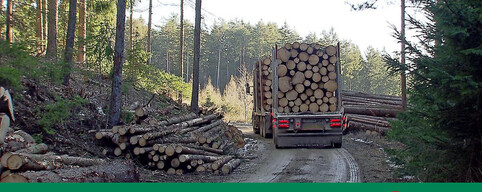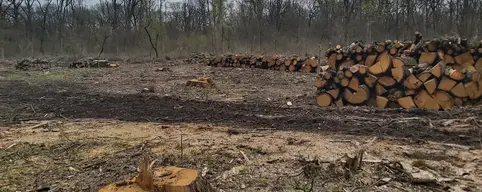

Trees and forests are of fundamental importance for the preservation of our planet. They function as gigantic sponges that have the capacity to absorb carbon dioxide, which is an important factor in the prevention of climate change. By capturing carbon, forests help to reduce the effects of greenhouse gases and slow down the rise in global temperature. The crucial role that forests play makes it all the more important to protect them from the destructive effects of deforestation.
Deforestation has devastating consequences that further exacerbate the threat of climate-related disasters. The disappearance of forests not only means a loss of biodiversity, but also a reduction in our earth's ability to store CO2. This results in a negative spiral in which more greenhouse gases end up in the atmosphere and the process of climate change is accelerated. The urgent need for measures to stop this harmful trend is therefore clear and requires worldwide intervention.
In an attempt to meet these challenges, the European Union has developed a biodiversity strategy that acts as a driving force for sustainable enterprise. Central to this strategy is the European Deforestation Regulation (EUDR), which fundamentally changes business practices. This regulation obliges companies to ensure that their products do not contribute to deforestation, thus introducing mandatory changes in global supply chains. Through this approach, the EU is not only trying to tackle global deforestation, but also to promote sustainability within the business community.
The EUDR sets requirements for companies in terms of traceability, due diligence and reporting. Organizations must ensure that their products can be traced back to sustainable sources and that they are free of deforestation. This means a significant change in how companies manage their supply chains, with an emphasis on transparency and responsible sourcing of raw materials. This challenges companies to be innovative and to review their practices to comply with the new regulations.
Although compliance with the EUDR presents companies with major challenges, it also offers opportunities to optimize their supply chains and make them more sustainable. Companies that successfully implement the changes can improve their market position and benefit from the increasing demand for sustainable products. Smart companies will seize this opportunity to innovate their processes and gain a competitive advantage by investing in sustainability.
The report 'Deforestation, meet transparency: How regulation is reshaping global markets' explores how organizations can effectively prepare for compliance with the EUDR. This document offers companies insight and tools to help them adapt to the new standards and adjust their market strategies accordingly. By thinking ahead and preparing thoroughly, companies can not only maintain their market share, but also contribute to a sustainable future.



